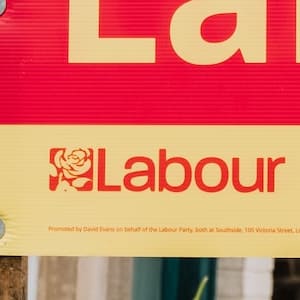banana republic: Idiom Meaning and Origin
What does ‘banana republic’ mean?
A "banana republic" refers to a politically unstable country economically dependent on a single export, often a fruit like bananas. The term implies corruption, lack of democracy, and the dominance of foreign corporations or interests.

Idiom Explorer
A "tin-pot dictatorship" refers to a small, insignificant and often oppressive ruling regime that has limited power and lacks legitimacy.
The idiom "land poor" means to be wealthy in terms of owning land, but lacking the necessary funds or resources to maintain or develop it, resulting in financial difficulty.
The idiom "land of opportunity" refers to a place or situation where there are many opportunities for success, especially in terms of economic and social advancement.
A kangaroo court refers to a mock or illegitimate judicial proceeding. The term implies a biased or unfair trial, lacking proper procedures and disregarding the principles of justice.
An idiomatic expression coined by Winston Churchill referring to the figurative barrier separating the communist nations of Eastern Europe from the democratic nations of Western Europe during the Cold War.
Having the tiger by the tail means being in a dangerous situation where one has a strong grip on something powerful and uncontrollable.
The idiom "go bananas" means to become extremely excited, agitated, or irrational. It is often used to describe someone losing control of their emotions or behaving in a wild and unpredictable manner.
When someone or something "goes to seed," they become neglected, deteriorate, or decline in quality or appearance.
The idiom "fruit of the union" refers to the positive results or benefits that come as a result of a collaboration or partnership. It symbolizes the outcome or product of a successful union or teamwork.
The true history of "Banana Republic."
The idiom "banana republic" is often used to describe a small, politically unstable country that is heavily dependent on the export of a single commodity, such as bananas. This term, which originated in the early 20th century, is widely recognized and used in various contexts.
The etymology of this idiom can be traced back to the United Fruit Company, an American corporation that played a significant role in the economic and political affairs of several Latin American countries during the early 20th century. American writer O. Henry popularized the term "banana republic" in his 1904 book "Cabbages and Kings," in which he used it to describe the fictional country of Anchuria. The term gained further prominence in the 1920s when William Sydney Porter, a former employee of the United Fruit Company, published the novel "Cabbages and Kings."
The association of the idiom "banana republic" with Central American countries was solidified during the Cold War era. Many nations in this region experienced political instability and relied heavily on banana exports. The United States frequently intervened in the internal affairs of these countries, often supporting authoritarian regimes that served its economic and political interests. As a result, the term "banana republic" became a symbol of economic exploitation, political corruption, and socio-economic inequality in these nations.
However, over time, the meaning of the idiom has expanded to include any country, regardless of its geographical location, that exhibits characteristics such as political instability, economic dependence on a single commodity, corruption, and a lack of democratic institutions. It has become a powerful symbol used in popular culture to criticize or mock countries or institutions that display these attributes.
The idioms "tin-pot dictatorship," "banana nose," "company town," "forbidden fruit," and "bad apple" are all related to the concept of a banana republic. These idioms, although not directly connected to the origins of the term, share similar themes and connotations.
The phrase "tin-pot dictatorship" is often used to describe a small, oppressive regime with limited power and influence. It conveys the idea of a leader who holds on to power through coercion and intimidation rather than genuine authority. This idiom aligns with the notion of a banana republic, which is characterized by political instability and often ruled by autocratic leaders.
The idiom "banana nose" is more figurative in its meaning. It refers to a person who is corrupt, dishonest, or involved in shady dealings. This phrase shares similarities with the concept of a banana republic, which is often associated with political corruption and economic exploitation.
A "company town" is a community where a single company controls most aspects of life, including employment, housing, and even local government. This idiom relates to the idea of a banana republic, which is heavily reliant on a single commodity or industry for its economic prosperity. In both cases, there is a lack of diversification and a concentration of power in the hands of a few.
The phrase "forbidden fruit" is often used metaphorically to describe something that is considered desirable but is also off-limits or prohibited. In the context of a banana republic, this idiom could relate to the allure of the single commodity that drives the country's economy. Despite the socio-economic inequalities and corruption associated with the banana republic, there may still be a temptation to engage in the trade of this commodity.
The idiom "bad apple" refers to a person who has negative qualities or influences within a group or organization. In the context of a banana republic, this could apply to individuals or groups involved in perpetuating the political instability, corruption, and economic dependence associated with such nations.
The idiom "banana republic" originated from the political and economic realities of Central American countries in the early 20th century. It has since evolved to encompass a broader range of meanings and become a symbol of political instability, economic dependence, and corruption. The related idioms of "tin-pot dictatorship," "banana nose," "company town," "forbidden fruit," and "bad apple" share similar themes and connotations. By examining the origins and usage of this idiom, we gain insights into the complex dynamics of power, inequality, and globalization that continue to shape our world today.
Example usage
- The president of the country is accused of turning it into a banana republic by enriching himself and his inner circle at the expense of the citizens. - The businessman was able to manipulate the government and gain control over key industries, effectively turning the country into a banana republic. - The lack of transparency and corruption in the political system has led to the country being labeled as a banana republic by international observers.
More "Geopolitics" idioms
We missed the mark - nothing found.



